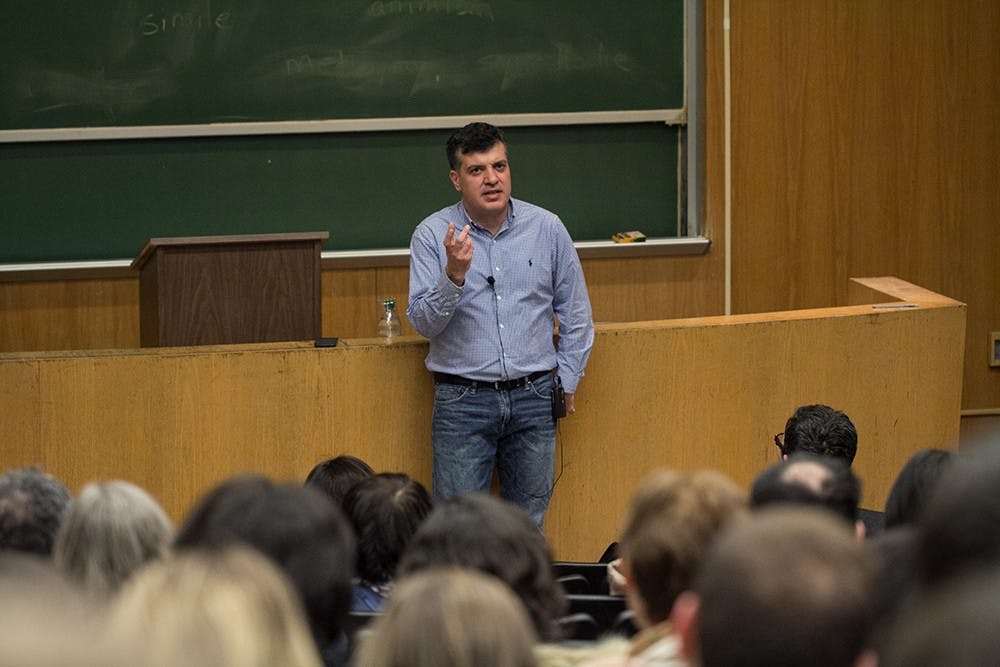“I’m getting used to the cornfields,” Kashua said, when describing his new life in America.
Kashua spoke to a group of students, faculty and community members Monday in Ballantine Hall about his experiences as an Arab-Palestinian citizen in Israel.
He said he enjoys the little things about being in the United States, such as being able to send his kids to a public school where so many nationalities come ?together.
He made himself laugh with the rest of Ballantine 310 as he said he never felt happier than the first time he filled out school ?enrollment forms for his children.
Kashua said he was frustrated at first, seeing a form that asked for the children’s race. He said he looked for Arab, then Israeli — neither was listed as a race.
“Then I looked for Jewish, even though we’re not, as a last resort,” he said. “That wasn’t listed either, so I asked the lady at the desk, ‘What race am I?’”
He said as soon as she verified he was from the Middle East, she told him he was considered white. Kashua said it was “really magical” to hear he was a part of the majority.
Kashua was born into an Arab village in Israel named Tira. During high school, he said he attended a boarding school in Jerusalem to learn Hebrew and get a better education. When he went to Jerusalem for school, he took a bus by himself for the first time.
The bus stopped at the airport, where he was then arrested and searched by a soldier at the age of 15 because he was identified as an Arab. He said this was the first time he felt “what it meant to be a stranger, to be an outsider and what it really means to be an Arab in Jerusalem.”
Though he was scared and frustrated with learning Hebrew, he said he was encouraged by his parents to continue going to school there. He said he read a lot in his time at the boarding school.
He learned how to read in Hebrew, then began writing about his experiences for school. Although he found a way to fit in through wearing “Jewish factory clothes” and a Walkman to class, his identity is still Arab.
“I realized through my readings that I had a different story to tell,” he said.
He said his story, from the perspective of someone with dual identities, was different than anything he read about. He found joy in having his high school teachers read his pieces in front of his classes.
“Since then I’ve been writing,” he said.
He first discovered the “art of storytelling” from his grandmother, he said. After learning to write about his experiences, he published three novels: “Dancing Arabs,” “Let it be Morning” and “Second Person ?Singular.”
“A lot of the stories are really sad, unless you make a comedy of it,” he said.
For now, Kashua is focusing on his literary work while he spends time in the U.S. He said it would take “the very basics of democracy” to be established in order for him to go back to Israel.
He said if he were to go back, he would need to feel like an equal citizen along with the rest of the Israelis.
“Maybe I would go back if I just knew the borders of Israel,” Kashua said.






